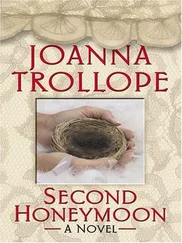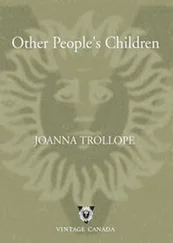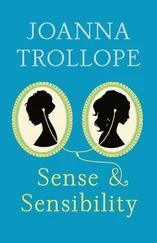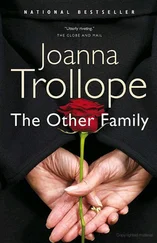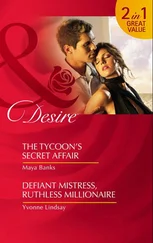Joanna Trollope - A Village Affair
Здесь есть возможность читать онлайн «Joanna Trollope - A Village Affair» весь текст электронной книги совершенно бесплатно (целиком полную версию без сокращений). В некоторых случаях можно слушать аудио, скачать через торрент в формате fb2 и присутствует краткое содержание. Жанр: Современные любовные романы, на английском языке. Описание произведения, (предисловие) а так же отзывы посетителей доступны на портале библиотеки ЛибКат.
- Название:A Village Affair
- Автор:
- Жанр:
- Год:неизвестен
- ISBN:нет данных
- Рейтинг книги:3 / 5. Голосов: 1
-
Избранное:Добавить в избранное
- Отзывы:
-
Ваша оценка:
- 60
- 1
- 2
- 3
- 4
- 5
A Village Affair: краткое содержание, описание и аннотация
Предлагаем к чтению аннотацию, описание, краткое содержание или предисловие (зависит от того, что написал сам автор книги «A Village Affair»). Если вы не нашли необходимую информацию о книге — напишите в комментариях, мы постараемся отыскать её.
A Village Affair — читать онлайн бесплатно полную книгу (весь текст) целиком
Ниже представлен текст книги, разбитый по страницам. Система сохранения места последней прочитанной страницы, позволяет с удобством читать онлайн бесплатно книгу «A Village Affair», без необходимости каждый раз заново искать на чём Вы остановились. Поставьте закладку, и сможете в любой момент перейти на страницу, на которой закончили чтение.
Интервал:
Закладка:
Venice filled her with a quite violent excitement. Long after she and Cecily got back - and they were only there for five days - Alice fed herself voluptuous fantasies of living there. She saw herself in a rooftop flat watching the sun sail round behind the belltowers and the domes, a flat with a balcony filled with pots of basil and a warm parapet on which to lean and gaze down into the still, olive-oily green waters of a canal. She saw herself going shopping with a basket, buying aubergines and long, sweet tomatoes from the vegetable boat by the San Barnaba bridge, and fantastic alien fish from the market, and pasta and parmesan cheese from the tiny crammed shops in the lanes of San Polo. In the background of these dreams, she could not disguise from herself, lurked a man. He was shadowy, but extremely satisfactory, and he was not Martin.
Then she became pregnant. She liked it. She was full of energy and aroused everyone's admiration. In their large circle of young couples, some had babies - almost all had dogs - and their mutual stage of marriedness was this possession of a first baby. Alice made no fuss about anything and bore Natasha with ease. Both mother and baby seemed instinctively to know how to handle one another, and Martin, who was not required by Alice to help with nappy-changing or midnight feeds, was deeply envied by colleagues whose wives had pointed out to them that the baby, with all its attendant troublesomeness, was half theirs.
Of course, with Natasha, she could not go so freely and frequently to Dummeridge. So she telephoned, every few days, and once a month Cecily came up to Wilton with armfuls of bounty from the garden and stayed in the third tiny bedroom, and was pleased with everything and enchanted by her granddaughter. She even sang to Natasha sometimes, and Alice and Martin exchanged slightly conspiratorial smiles of accomplishment and pleasure. Alice's friends adored her. They would all pour in for coffee or for lunch round the kitchen table, clutching their babies and their toddlers, if they knew Cecily was there. At Christmas, they gave their mothers copies of Cecily's book which they brought proudly for her to autograph.
It was then that Alice met Alex Murray-French. Alex's father John lived at The Grey House in Pitcombe, a much admired village where all Alice's friends aspired, without much hope, to live. Alex's parents had divorced when he was eight, but The Grey House had been his childhood home, and he chose to return to it a good deal rather than go out to Australia with his mother and stepfather. On one of his visits to his father, he saw a painting of Alice's, a painting she had done for a mutual friend, of a flight of stone steps leading up to an archway and a tangle of creeper. He thought he would like such a painting to send to his mother in Australia, and so he drove to Apple Tree Cottage one afternoon, on the off-chance, and found Alice on the doorstep stripping currants with her baby asleep in a basket beside her under a patchwork quilt.
Alex fell in love as suddenly as Martin had done four years before. Alice did not fall back, but she felt she would very much have liked to. He was eager and sympathetic and cultivated. He came constantly, all that autumn, on the pretext of his mother's painting, and Alice basked in his longing and admiration like a cat in the sun. She never flirted with him and he never even tried to kiss her. He told her most eloquently of his feelings, and although she liked to hear him he did not strike an answering chord in her. In the end Martin grew suspicious and angry and Alex took his picture and himself away and left Alice with a real emptiness, a bigger one than she felt was in the least fair.
Martin watched her for a long time after this.
'There was nothing in it,' Alice would say. 'He had a crush on me and I didn't have one back. I liked talking to him, that's all.'
Martin knew that, but he still felt sulky about it. He believed her and yet he felt at the same time that that part of her, that differentness in her, that had made him want her so much, was becoming elusive, that he couldn't catch it any more. Instead of feeling that life with her was a lovely chase, he began to feel that she was keeping something back. But because he could not, by temperament, speak of it, he watched her instead, and this made her cross.
Her second pregnancy was quite unlike the first. She felt sick, she was sick, and many days she was so tired that from the moment she dragged herself out of bed in the morning, she was obsessed, all day, with the prospect of getting back into it. James was born with difficulty and didn't seem to like life outside Alice when confronted with it. Cecily dispatched a New Zealand girl, from a London agency, to help Alice, and Apple Tree Cottage strained at the seams under the impact of her capable outdoorsy personality. She certainly worked, and Alice could rest in the afternoons and send Natasha off to nursery school every morning in clean dungarees not laundered by herself, but the privacy of their lives was quite gone. Jennie was only with them for four months, but when she left, in a gale of good will, for a family in Pelham Crescent, she left behind her the constraint between Alice and Martin that they had adapted to encompass her in their lives. Friendly and goodmannered towards one another, they moved through the rituals of Martin's job and Natasha's school runs and James's demands, and supper parties (small), and children's tea parties (large), without somehow either coming together or moving forward.
Alice pretended not to notice that she didn't want to paint. Her friend, Juliet Dunne, whose husband Henry was agent at Pitcombe Park and who was blessed with a sharp tongue and keen percipience, made no bones about pointing this out.
'It's no good hiding, Allie. This awful baby business doesn't last long, and if you aren't careful you'll end up like my mother saying why is it every day takes a week. It doesn't matter if you don't want to paint. You just have to.'
'I do want to-'
'No you don't. You just want to want to. You won't get real wanting back unless you kick yourself into doing something. Look at our useless husbands. They'll never get anywhere much because they couldn't move themselves if you paid them.'
'Why did you marry Henry?'
'Oh,' Juliet said, scraping apricot pudding off her newest baby's chin, 'he was so suitable and so keen and everyone else in my flat was getting married. I quite like him, though.'
'You mean love him.'
'Yuk,' said Juliet.
Alice did try to paint after that, and it bored her so much she was quite alarmed. She took out some things she had done before James was born and they looked to her the desirable achievements of a total stranger, so she put them away again, hurriedly, before they should demoralize her. She had, she told herself, plenty to do in any case and she did it all - a touch of pride here without any help at all. None of her friends managed their houses and families with no help at all. Cecily was always offering her some, but she said the cottage was too small, and in any case she liked her privacy.
Small things happened. Martin was made a junior partner, Natasha started at a little private school in Salisbury - the children wore checked smocks and had to shake hands, smiling, with their teacher each morning
- they built on a playroom and another bedroom at the cottage. In the late winter, Alice and Martin went skiing (Alice discovered, rather to her satisfaction, that she liked frightening herself), and in the summer Cecily rented a cottage for them on the north Cornish coast where the children could play on the calm sands of the Camel estuary. Alice began to read, hungrily, novel after novel, carrying lists of them around in her bag along with the purse and cheque books and cash cards and paper handkerchiefs and tubes of Smarties and clean knickers and sticking plasters that formed her daily battle gear. Titles like And Quiet Flows the Don stuck in her mind like burrs. She chanted them to herself in the car, while in the back the members of the school run bullied the most tearful, sucked their thumbs and surreptitiously took their knickers off in order to amaze the others with their wicked daring.
Читать дальшеИнтервал:
Закладка:
Похожие книги на «A Village Affair»
Представляем Вашему вниманию похожие книги на «A Village Affair» списком для выбора. Мы отобрали схожую по названию и смыслу литературу в надежде предоставить читателям больше вариантов отыскать новые, интересные, ещё непрочитанные произведения.
Обсуждение, отзывы о книге «A Village Affair» и просто собственные мнения читателей. Оставьте ваши комментарии, напишите, что Вы думаете о произведении, его смысле или главных героях. Укажите что конкретно понравилось, а что нет, и почему Вы так считаете.

